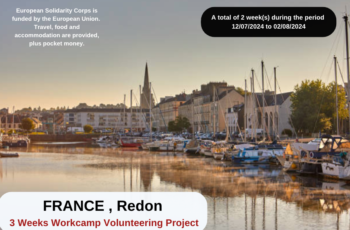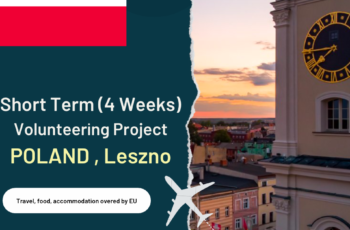Enhancing the Impact of Non-Formal Education (NFE): Principles and Methods for Empowering Youth as Active Members of Society (from Local to European Levels)
Why Attend This Training Course?
To inspire participants to understand and reflect on the power of non-formal education (NFE) by engaging in various non-formal educational methods.
To examine the role and perception of NFE in different countries within a unified Europe.
To counteract the increasing consumerist approaches towards youth in the non-formal education sector.
To explore the meanings, roles, and complementarities of different educational approaches and methods (formal, non-formal, informal).
To rethink everyday youth work practices.
To grasp the principles of program development and NFE within the Erasmus+ Youth framework.
How Will It Be Conducted?
To achieve real impact, participants will experience an innovative approach, fully immersing in the experiential learning cycle: doing/feeling, reflecting, transferring…
For a profound impact, we need to go beyond traditional training courses.
Participants are encouraged to actively shape their own training and learning process, supported by a finely tuned pedagogical program. This is considered essential to truly understand the power of NFE.
The Pedagogical Process The training will follow a fundamental flow:
Experiencing: Engaging in different educational settings and non-formal education methods (role play, simulation exercises, etc.).
Reflecting: Considering the methods and their impacts, the power and limitations of NFE, and building a pedagogical process.
Transferring: Applying insights to participants’ own realities to enhance their work with young people.
Sharing: Exchanging different perceptions, current situations, and experiences.
Developing: Building participants’ capacities by involving them in the decision-making process of project design (participants will decide on some sessions they feel are necessary) and in the implementation of the program (‘Power to the People’ moments).
Participants must be at least 18 years old and have a good command of English.
10-15 December 2024 | Portugal
Join us our telegram group for more opportunities – t.me/erasmusday
Join us our WhatsApp Channel group for more opportunities –WhatsApp Channel

